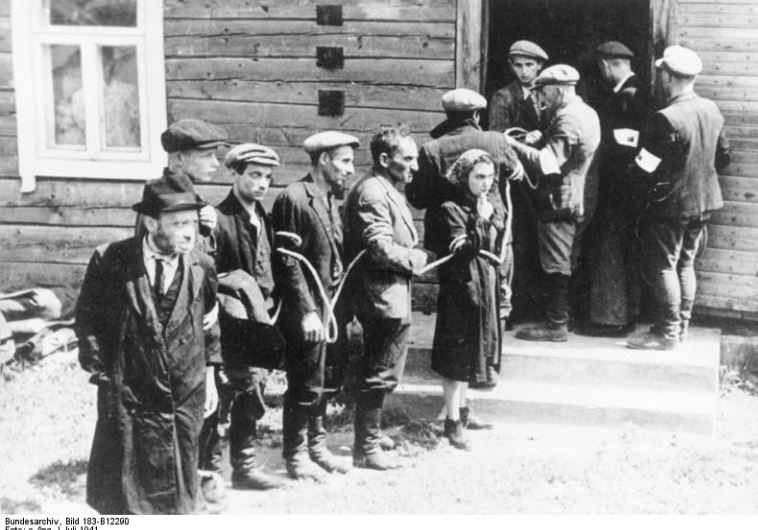Lithuania pledges to publish names of 1,000 suspected Holocaust perpetrators
State museum on genocide says will try to publish book this year naming local Nazi collaborators.
 Lithuanian collaborators (with white armbands) arresting Jews in July 1941 (photo credit: WIKIMEDIA COMMONS/GERMAN FEDERAL ARCHIVES)
Lithuanian collaborators (with white armbands) arresting Jews in July 1941 (photo credit: WIKIMEDIA COMMONS/GERMAN FEDERAL ARCHIVES)